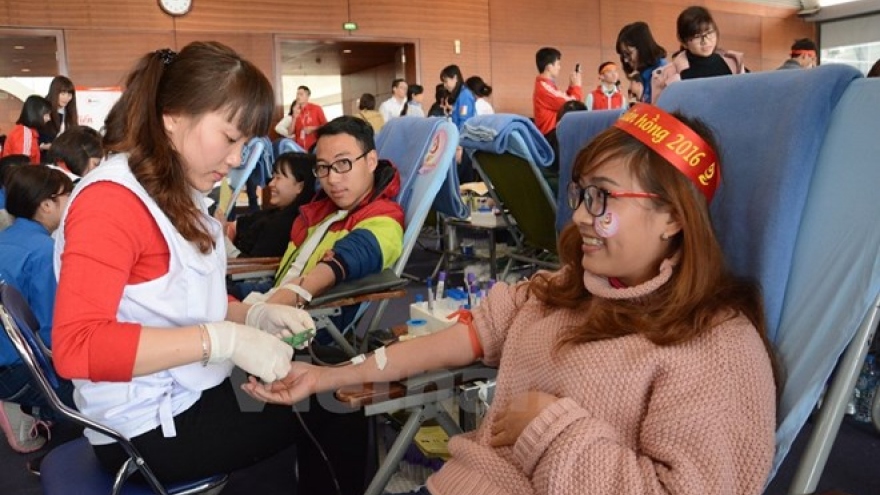The draft law has been met with mixed feedback from health experts, some of whom aired their support for the current rule that asks citizens to donate their blood on a voluntary basis.
In order to make a blood donation, people must be between 18 and 60 years old and not have cardiac disease, hypertension, and such blood-borne illnesses as HIV/AIDS, hepatitis B, hepatitis C, syphilis, and malaria.
Donors must weigh 42 kilograms and over for women, and 45 kilograms and above for men, as well as having a suitable hemoglobin index.
Meanwhile, Nguyen Anh Tri, chief of the National Institute of Hematology and Blood Transfusion (NIHBT) and member of the law-making National Assembly, approved of the draft law, considering it a “civilized” approach that has been adopted by many countries.
Vietnamese donated over 470,000 liters of blood in 2016, equivalent to 1.52 percent of the population, Tri stated, adding that the ratio is still lower than the two percent rate recommended by the World Health Organization.
Although voluntary blood donation has become a trend in the Vietnamese community, a specific law on it is necessary, the official said.
He cited China as an example, where 100 percent of the transfused blood was sold by givers in 1999.
By 2005, when a blood donation law was issued, 98 percent of the blood had been donated by its citizens.
The Vietnamese draft law is pending approval by the National Assembly.
